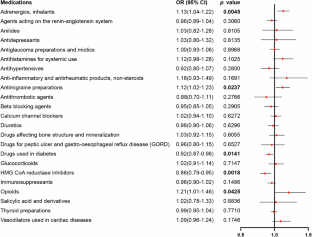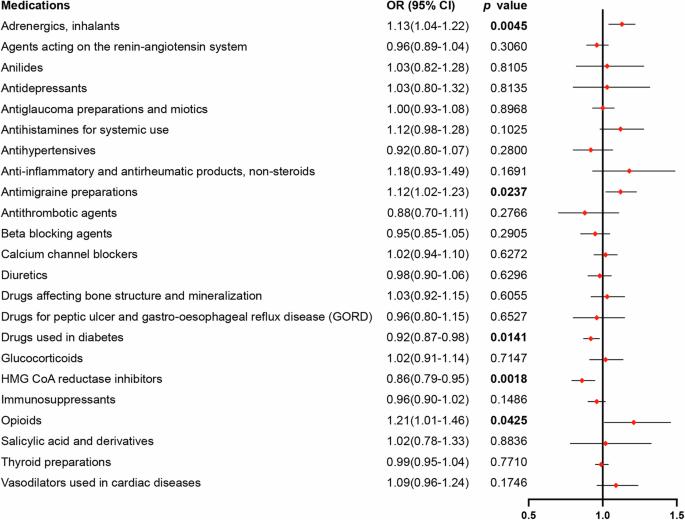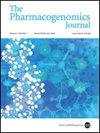揭示 HMG-CoA 还原酶抑制剂与膀胱癌之间的关联:利用孟德尔随机化、动物模型和转录组学进行综合分析。
IF 2.9
3区 医学
Q2 GENETICS & HEREDITY
引用次数: 0
摘要
本研究利用孟德尔随机化(MR)分析和全基因组关联研究(GWAS)数据调查了常用处方药与膀胱癌(BLCA)风险之间的关联。我们的研究结果表明,HMG CoA 还原酶(HMGCR)抑制剂,特别是辛伐他汀,与膀胱癌风险的降低显著相关。我们进一步发现,辛伐他汀能在动物模型中显著抑制BLCA的增殖和上皮-间质转化,转录组数据确定了与这些过程相关的几条通路。HMGCR的高表达与BLCA的发生和发展有关,而某些血脂,如脂蛋白颗粒和极低密度脂蛋白(VLDL)胆固醇,可能会影响BLCA的风险。这些研究结果表明,HMGCR抑制剂,尤其是辛伐他汀,可能是治疗或辅助治疗BLCA的潜在选择。本文章由计算机程序翻译,如有差异,请以英文原文为准。


Unveiling the association between HMG-CoA reductase inhibitors and bladder cancer: a comprehensive analysis using Mendelian randomization, animal models, and transcriptomics
This study utilized Mendelian randomization (MR) analysis and genome-wide association study (GWAS) data to investigate the association between commonly prescribed drugs and bladder cancer (BLCA) risk. Our results revealed that HMG CoA reductase (HMGCR) inhibitors, specifically simvastatin, are significantly associated with reduced BLCA risk. We further showed that simvastatin could significantly inhibit BLCA proliferation and epithelial-mesenchymal transition in animal models, with transcriptomic data identifying several pathways associated with these processes. Higher expression of HMGCR were linked with BLCA development and progression, and certain blood lipids, such as lipoprotein particles and very low density lipoprotein (VLDL) cholesterol, might influence BLCA risk. These findings suggested that HMGCR inhibitors, particularly simvastatin, could be potential treatment options or adjuvant therapies for BLCA.
求助全文
通过发布文献求助,成功后即可免费获取论文全文。
去求助
来源期刊

Pharmacogenomics Journal
医学-药学
CiteScore
7.20
自引率
0.00%
发文量
35
审稿时长
6-12 weeks
期刊介绍:
The Pharmacogenomics Journal is a print and electronic journal, which is dedicated to the rapid publication of original research on pharmacogenomics and its clinical applications.
Key areas of coverage include:
Personalized medicine
Effects of genetic variability on drug toxicity and efficacy
Identification and functional characterization of polymorphisms relevant to drug action
Pharmacodynamic and pharmacokinetic variations and drug efficacy
Integration of new developments in the genome project and proteomics into clinical medicine, pharmacology, and therapeutics
Clinical applications of genomic science
Identification of novel genomic targets for drug development
Potential benefits of pharmacogenomics.
 求助内容:
求助内容: 应助结果提醒方式:
应助结果提醒方式:


